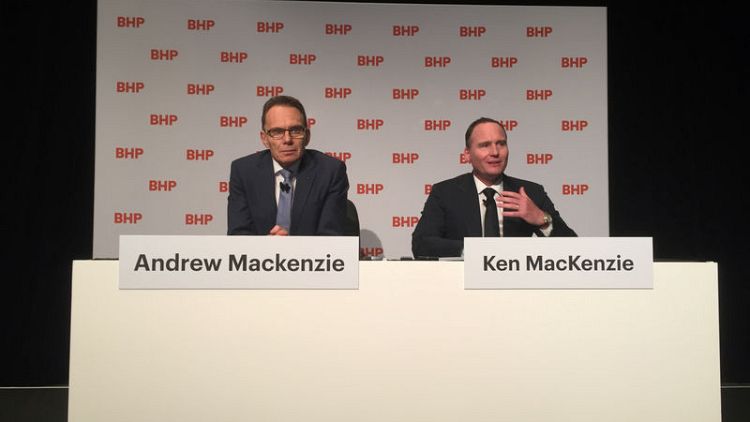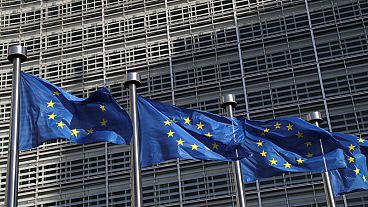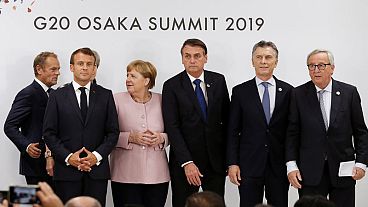By Barbara Lewis
LONDON (Reuters) - The chief executive of mining group BHP has no plans to quit and will focus on the "nuclear level of safety" needed to avoid any repeat of the Vale dam collapse in Brazil, as well as on transforming his own company.
Speculation about the future of CEO Andrew Mackenzie, 62, has swirled since 2017 when activist investor Elliott Advisors began campaigning for change and Ken MacKenzie was appointed as chairman.
Asked about how long he planned to stay, Mackenzie, in the role since 2013, said he was not thinking about moving on.
"I've got a lot to do right now and I've got a lot to do on tailings dams," he told reporters in London.
As the tailings disaster in Brazil in January overshadows the mining industry, BHP has the experience to lead change as its Samarco joint venture with Vale was involved in a previous dam collapse in November 2015 that left 19 dead.
Following Samarco, the International Council on Mining and Metals (ICMM) issued updated guidelines to try to safeguard tailings dams that store waste from mining operations.
But the ICMM is industry-led and Mackenzie has called for an independent body to oversee dams.
"We have to acknowledge the deficiencies in the scientific and technical understanding," the Scotsman said.
"You need to think about this with the best possible science and engineering in the world. It has to have a nuclear level of safety now."
Mackenzie said mining companies were needed to provide society with resources and to support a transition to a low carbon economy that will spur demand for minerals such as copper, used in electrification.
After the commodities crash of 2015-16, the mining industry has repaired balance sheets and handed cash to shareholders. The next steps are less obvious as old ore bodies become depleted and new assets are often in politically unstable countries.
BHP on Tuesday said its first-half underlying profit was down 8 percent from the same period a year ago and it cut its forecast for productivity gains to flat for the financial year, mainly because production outages meant $460 million in savings was not achieved.
Mackenzie said he was excited to be leading a "transformation agenda" to help with the next phase of growth and maximise the productivity of operations.
"The transformation agenda is the biggest lever we have got to play. It's reporting direct to me. I'm getting a lot out of it," Mackenzie said.
(Editing by Keith Weir)



